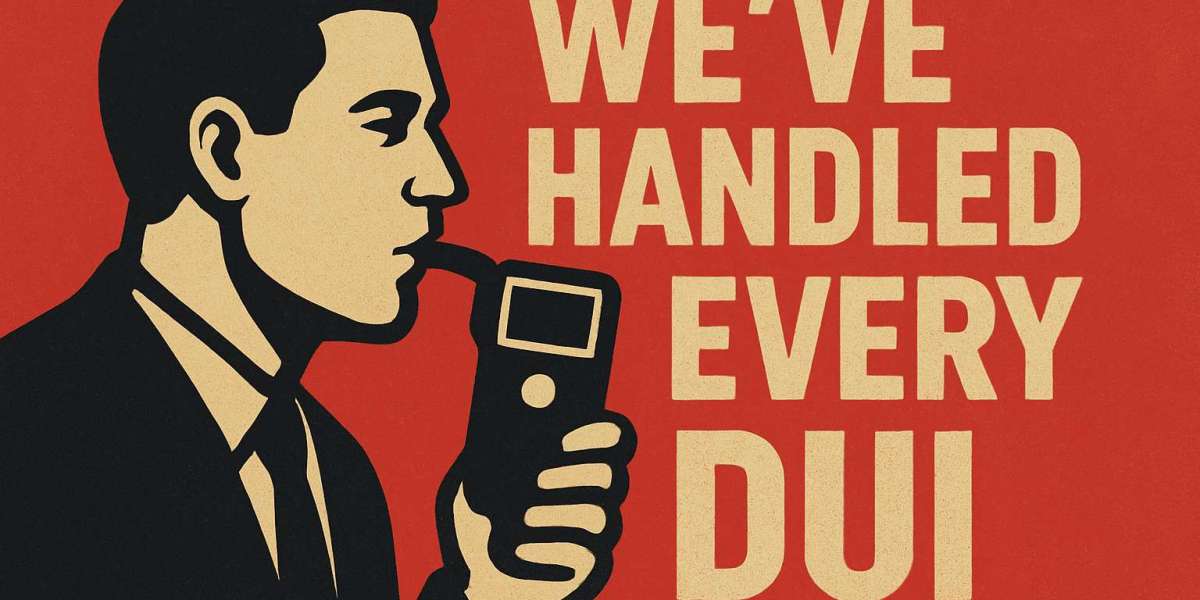Traffic Violations: Protecting Your License, Record, and Future
Many people think of traffic violations as minor inconveniences — just another ticket to pay and forget. But depending on the charge, a traffic offense can have serious legal and financial consequences, including license suspension, increased insurance rates, hefty fines, and even jail time.
Whether you’ve been cited for reckless driving, driving under the influence (DUI), or a hit-and-run, it’s important to understand your rights and legal options. A skilled criminal defense attorney can help you fight the charge, reduce penalties, or keep your record clean.
1. Understanding Traffic Violations
Traffic offenses fall into two main categories: infractions and criminal violations.
Infractions
These are minor offenses that typically result in a fine or citation, not jail time. Common examples include:
Speeding
Running a red light or stop sign
Failing to signal
Parking violations
While infractions may seem harmless, multiple tickets can add up — leading to points on your driver’s license, higher insurance costs, or suspension.
Misdemeanor or Felony Traffic Violations
More serious traffic violations are classified as misdemeanors or even felonies, especially when they endanger others. These offenses can lead to criminal charges, requiring a court appearance and carrying potential jail or prison time. Examples include:
Reckless driving
Driving under the influence (DUI or DWI)
Hit-and-run (leaving the scene of an accident)
Driving with a suspended or revoked license
Vehicular manslaughter
These cases go beyond traffic court — they’re prosecuted in criminal court and can result in a permanent record.
2. Common Types of Traffic Violations
1. Speeding
Exceeding the posted speed limit is one of the most common traffic violations. Penalties depend on how much you exceeded the limit, your prior record, and whether anyone was injured. Excessive speeding can lead to reckless driving charges, a criminal offense.
2. Reckless Driving
Defined as operating a vehicle in a way that shows willful disregard for safety, reckless driving is a serious misdemeanor that can lead to jail time, fines, and license suspension.
3. Driving Without a License or Insurance
Driving without a valid license, or without proof of insurance, is considered a criminal offense in many states. Repeat offenders may face jail time and additional license restrictions.
4. Driving on a Suspended or Revoked License
If your license has been suspended or revoked, driving anyway can result in severe penalties — including longer suspension periods, heavy fines, and possible jail time.
5. DUI / DWI
Driving under the influence of alcohol or drugs is one of the most serious traffic-related crimes. Penalties may include:
License suspension
Jail time
Mandatory DUI education programs
Ignition interlock device installation
Significant fines and probation
6. Hit-and-Run
Leaving the scene of an accident, even a minor one, is a criminal offense. If someone was injured or killed, it can become a felony punishable by years in prison.
7. Vehicular Manslaughter
If a traffic accident results in death and involves reckless or impaired driving, prosecutors may file vehicular manslaughter charges — among the most severe driving-related crimes.
3. The Consequences of Traffic Violations
Even a single traffic violation can have lasting effects. Consequences may include:
Fines and court costs: Can range from a few hundred to several thousand dollars.
License suspension or revocation: Too many points on your record can automatically suspend your driving privileges.
Increased insurance premiums: Insurers may consider you a “high-risk driver.”
Criminal record: For misdemeanors or felonies, a conviction stays on your record and may affect employment.
Jail or probation: Serious or repeat offenses can lead to incarceration.
Community service and defensive driving courses: Often required as part of sentencing.
These penalties can disrupt your career, family life, and freedom — making it essential to take every charge seriously.
4. The DMV Point System
Most states use a point system to track driver behavior. Each moving violation adds points to your license. Too many points within a set timeframe can result in suspension or mandatory driving school.
For example:
Speeding: 1–2 points
Reckless driving: 2–4 points
DUI or hit-and-run: 6+ points
Your attorney can help you contest citations and prevent unnecessary points from being added to your record.
5. Common Defenses Against Traffic Violations
Just because you were cited or arrested doesn’t mean you’ll be convicted. A strong legal defense can help reduce or eliminate penalties. Common strategies include:
1. Faulty Equipment or Procedures
Radar guns, red-light cameras, and breathalyzers are not always accurate. Improper calibration or human error can make evidence unreliable.
2. Lack of Probable Cause
If the officer stopped you without a valid legal reason, your attorney can challenge the traffic stop and move to dismiss the case.
3. Mistaken Identity
In some cases, officers or witnesses may have misidentified your vehicle or license plate.
4. Emergency Situations
If you violated a traffic law to avoid a greater danger — such as swerving to prevent an accident — your attorney can argue that your actions were justified.
5. Insufficient Evidence
The prosecution must prove guilt beyond a reasonable doubt. Weak or incomplete evidence can lead to a reduced charge or full dismissal.
6. Why You Shouldn’t Just Pay the Ticket
Paying a ticket might seem like the easiest way out, but it’s equivalent to pleading guilty. Doing so may:
Add points to your license
Raise your insurance premiums
Affect your ability to keep a commercial driver’s license (CDL)
Lead to future license suspension for repeat violations
An attorney can help you fight the ticket, negotiate for reduced penalties, or seek dismissal.
7. How a Traffic Violation Attorney Can Help
A knowledgeable traffic defense lawyer can make a significant difference in your case. They will:
Review all evidence, police reports, and witness statements
Identify procedural or constitutional violations
Represent you in court and DMV hearings
Negotiate with prosecutors for reduced charges or fines
Help you keep your license and avoid increased insurance costs
In some cases, your attorney may appear in court on your behalf — saving you time and stress.
8. Special Considerations for Commercial Drivers (CDL Holders)
If you hold a commercial driver’s license, even a minor traffic violation can threaten your career. Federal and state laws hold CDL drivers to stricter standards, and certain violations can result in immediate disqualification.
An experienced attorney can help you protect your CDL status and livelihood.
9. Expungement of Traffic Violations
In some cases, older or minor traffic convictions can be expunged or sealed from your record. This process removes the violation from public view, helping you:
Lower insurance rates
Restore your driving privileges
Avoid penalties for prior convictions
Your attorney can determine if you’re eligible for expungement and handle the process for you.




